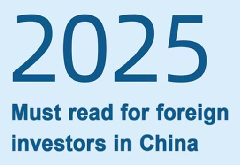Provisions for Drug Recall (SFDA Decree No. 29) (Abolished)
Provisions for Drug Recall (SFDA Decree No. 29)
Promulgated on December 10, 2007
The Provisions for Drug Recall was deliberated and adopted by the executive meeting of the State Food and Drug Administration on December 6, 2007 and now is issued. These Provisions shall go into effect as of the date of promulgation.
Commissioner: Shao Mingli
December 10, 2007
Provisions for Drug Recall
Chapter 1 General Provisions
Article 1 The Provisions are formulated with a view to strengthening supervision of drug safety to ensure the safe use of drugs for the public in accordance with Drug Administration Law of the People's Republic of China, Regulations for the Implementation of the Drug Administration Law of the People's Republic of China and Special Rules of the State Council on Strengthening the Supervision and Management of the Safety of Food and Other Products.
Article 2 These Provisions are applicable to recall of drugs sold within the territory of the People's Republic of China and supervision and administration of their recall.
Article 3 Recall of drugs mentioned in these Provisions refers to recall of drugs with safety hazards on the market by drug manufacturers (including overseas manufacturers of imported drugs, the same below) in accordance with prescribed procedures.
Article 4 Safety hazards mentioned in these Provisions mean unreasonable drug-related hazards to human health and life caused by problems associated with research & development, production and other factors.
Article 5 Drug manufacturers shall establish and improve the drug recall system according to these Provisions, collect relevant drug safety information, investigate and assess drugs with potential safety hazards and recall drugs with safety hazards.
Drug distributors and users shall assist drug manufacturers in fulfilling the recall obligation, transmit information and provide feedback on recall of drugs and control and take back drugs with safety hazards according to the requirements of the recall plan.
Article 6 Upon finding the drug it sells and uses as of safety hazards, the drug distributor or user shall stop selling or using the drug, notify the drug manufacturer or supplier and report the findings to relevant drug regulatory departments immediately.
Article 7 Drug manufacturers, distributors and users shall establish and keep a complete purchase and sales record to ensure the traceability of drugs sold (on the market).
Article 8 The local drug regulatory department of the province, autonomous region or municipality directly under the Central Government where the manufacturer of the recalled drug is located is responsible for supervising and managing recall of the drug. The drug regulatory departments of other provinces, autonomous regions or municipalities directly under the Central Government shall cooperate and assist in work relating to recall of the drug.
The State Food and Drug Administration shall supervise the management of recall of drugs across the country.
Article 9 The State Food and Drug Administration and the drug regulatory department of the province, autonomous region or municipality directly under the Central Government shall establish the drug recall information disclosure system and publicize information about drugs with safety hazards and recall of drugs to the society in an effective way.
Chapter 2 Investigation and Assessment of Drug Safety Hazards
Article 10 Drug manufacturers shall establish and improve the drug quality assurance system and adverse drug reaction monitoring system, collect and record information relating to drug quality problems and adverse drug reactions and report the results to the drug regulatory department promptly as required.
Article 11 Drug manufacturers shall investigate potential safety hazards of drugs.
When drug regulatory departments carry out investigation of potential safety hazards of drugs, drug manufacturers shall provide assistance.
Drug distributors and users shall work in conjunction with drug manufacturers or drug regulatory departments to carry out investigation on safety hazards of drugs and provide relevant information.
Article 12 Matters covered by investigation of drug safety hazards are decided depending on the actual situation and may include:
(Ⅰ) Type, range and cause of adverse drug events;
(Ⅱ) Whether the use of drug conforms to indications, dosage and administration specified in the instruction and label;
(Ⅲ) Whether the drug quality meets the national standard, whether the production of the drug meets the regulations such as GMP, whether the drug is manufactured in accordance with the approved manufacturing process;
(Ⅳ) Whether the storage and transport of drug meet the requirement;
(Ⅴ) Composition and proportion of main populations using the drug;
(Ⅵ) Batch number, quantity and area and scope of circulation of the drug with potential safety hazards;
(Ⅶ) Other factors likely to affect drug safety.
Article 13 Assessment of drug safety hazards mainly includes:
(Ⅰ) Likelihood of the drug causing harms and whether it has caused harms to human health;
(Ⅱ) Harmful effects on main populations using the drug;
(Ⅲ) Harmful effects on special populations, especially high risk groups, such as the elderly, children, pregnant women, people with hepatic and renal insufficiency and surgical patients;
(Ⅳ) Severity and urgency of the harm;
(Ⅴ) Consequences caused by the harm.
Article 14 According to the severity of safety hazards of the drug, recalls are classified as:
(Ⅰ) Class 1 recall: Use of the drug may cause serious harms to health;
(Ⅱ) Class 2 recall: Use of the drug may cause temporary or reversible harms to health;
(Ⅲ) Class 3 recall: Use of the drug usually will not cause any harm to health, but the drug has to be recalled due to other reasons.
Drug manufacturers shall devise the drug recall plan in a scientific way and organize its implementation according to the recall classification and sales and use of the drug.
Chapter 3 Voluntary Recall
Article 15 Drug manufacturers shall analyze information collected, investigate and assess drugs with potential safety hazards according to requirements of Article 12 and Article 13 of these Provisions and recall the drugs found to have safety hazards immediately.
Overseas manufacturers of imported drugs who recall drugs abroad shall report the case to the State Food and Drug Administration promptly. In the case of recall inside China, the importer shall be responsible for implementing the recall according to these Provisions.
Article 16 After making the decision to recall the drug, the drug manufacturer shall make the recall plan and organize its implementation, notify the relevant drug distributors and users to stop selling and using the drug within 24 hours in the case of Class 1 recall, 48 hours in the case of Class 2 recall and 72 hours in the case of Class 3 recall, and at the same time report the case to the local drug regulatory department of the province, autonomous region or municipality directly under the Central Government.
Article 17 After starting the drug recall procedure, the drug manufacturer shall submit the investigation and assessment reports and recall plan to the local drug regulatory department of the province, autonomous region or municipality directly under the Central Government for record within 1 day in the case of Class 1 recall, 3 days in the case of Class 2 recall and 7 days in the case of Class 3 recall. The local drug regulatory department of the province, autonomous region or municipality directly under the Central Government shall submit the received investigation and assessment reports and plan for Class 1 recall to the State Food and Drug Administration.
Article 18 The investigation and assessment report shall include the following items:
(Ⅰ) Specific information about the recalled drugs, including basic information such as name and batch number;
(Ⅱ) Causes of the recall;
(Ⅲ) Results of the investigation and assessment;
(Ⅳ) Class of the recall;
The recall plan shall include the following items:
(Ⅰ) Information about production and sales of the drug and quantity of the drug to be recalled;
(Ⅱ) Specific details of the recall measure, including organization, scope and time limit of implementation;
(Ⅲ) Way and scope of disclosing the recall information;
(Ⅳ) Expected result of the recall;
(Ⅴ) Post-recall measures;
(Ⅵ) Name and contact details of the contact person.
Article 19 The local drug regulatory department of the province, autonomous region or municipality directly under the Central Government may organize experts to assess the recall plan submitted by the drug manufacturer according to the actual situation, and may request the drug manufacturer to take more effective measures such as expanding the scope of recall and shortening the time of recall if it considers the measures taken by the drug manufacturer as inadequate for eliminating safety hazards effectively.
Article 20 In the case of changing the recall plan submitted, the drug manufacturer shall report the change to the drug regulatory department for record promptly.
Article 21 During implementation of the recall, the drug manufacturer shall give updates to the local drug regulatory department of the province, autonomous region or municipality directly under the Central Government on the recall progress daily in the case of Class 1 recall, every 3 days in the case of Class 2 recall and every 7 days in the case of Class 3 recall.
Article 22 Drug manufacturers shall keep a detailed record of handling the recalled drugs and report the results to the local drug regulatory department of the province, autonomous region or municipality directly under the Central Government. Drugs to be destroyed must be destroyed under the supervision of the drug regulatory department.
Article 23 After completing the recall, the drug manufacturer shall assess the effect of the recall and submit the drug recall summary report to the local drug regulatory department of the province, autonomous region or municipality directly under the Central Government.
Article 24 The local drug regulatory department of the province, autonomous region or municipality directly under the Central Government shall review the summary report within 10 days of receiving it, evaluate the recall effect and organize experts to carry out review and evaluation if necessary. The drug manufacturer shall be informed of the conclusion of the review and evaluation in writing.
If the review and evaluation find the recall inexhaustive and that more effective measures are needed, the drug regulatory department shall require the drug manufacturer to make another round of recall or expand the scope of recall.



